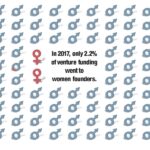Share this article! Stephanie Duncker (who goes by Dünx online) made headlines in March when she spoke out against her former employer, Squarespace, on the website Medium. Duncker said she felt ostracized for expressing concerns about the company’s diversity demographics. Duncker worked at the Portland Squarespace customer service office from August 2013 to November 2015. … Read more
 Stephanie Duncker (who goes by Dünx online) made headlines in March when she spoke out against her former employer, Squarespace, on the website Medium. Duncker said she felt ostracized for expressing concerns about the company’s diversity demographics.
Stephanie Duncker (who goes by Dünx online) made headlines in March when she spoke out against her former employer, Squarespace, on the website Medium. Duncker said she felt ostracized for expressing concerns about the company’s diversity demographics.
Duncker worked at the Portland Squarespace customer service office from August 2013 to November 2015. She has since joined the Startup PDX Challenge as program manager. In this email Q & A, Duncker discusses tech diversity — or the lack thereof — her difficulties breaking into the industry and ways tech businesses can become more inclusive.
According to the data cited by Portland Tech Town, only 2% of the tech industry workforce is black. Out of the 20,600 tech workers in Portland, 17,000 are white and 14,000 are male. What do you takeaway from these statistics?
Everyone always talks about the pipeline, which is definitely a problem.
It’s hard to deny that there are just less women and black people who have advanced engineering experience. That being said, the tech industry workforce is a lot more than engineers. There are plenty of opportunities within the tech industry (like support, for example) that don’t require a ton of tech background to be good at the job, since typically most of what you need to know is learned on the job. And while we often do see women in other tech positions, like support or design — the same can’t really be said in regards to black and latino people.
The reasons underrepresented populations don’t typically fill these non-engineering tech positions are largely “cultural,” which to me signifies that exclusion and discriminatory practices are built into that company’s culture.
What do you think is the biggest misconception around diversity-in-tech?
I think people assume that just hiring more women and people of color will solve these kind of issues. That’s not true. There also has to be a change in culture to make the environment more welcome to folks, otherwise you won’t retain them, (or if you do retain them you’ll make their lives miserable).
Also, people assume that their culture is inherently innocent, but many of the “awesome” tech workplaces create hostile environments for underrepresented people and women. Not everyone wants to be a “bro.” Environments filled with ping pong, kegerators and other tech amenities often lead to inappropriate behaviors specifically towards these populations.
What other challenges have you encountered as you navigate the technology sector?
Mainly the problems I’ve faced are actually breaking into the industry. Trying to learn new coding languages while working full time is extremely difficult, and code schools are expensive. Even those schools with scholarships usually require you to take a few months off work to participate in school.
What prompted your decision to come forward about your own experience?
I saw on Twitter that people were trying to downplay what Amelie [Lamont] said, and I heard that the current leadership was trying to imply that this was the past, since most of what she described happened over a year ago.
What kind of feedback have you received since your post on Medium went viral?
Mostly positive, especially from current employees who thanked me for drawing attention to the lack of opportunities for development at the job. Many are hoping that not only the racial issues, but [also] the job mobility issues will be affected by the attention.
So how can tech companies be more inclusive both in recruitment and in the workplace?
I really like the idea of blind hiring practices. I don’t have personal experience with this, but I know there’s evidence that it worked in other fields. I feel like it’d be worth doing more in tech as well.
I also think companies should bring in professionals (recruiting, training and company culture experts) instead of relying on people who have never done this before to change the company.
And this might contradict what I just said, but for minority and/or women employees who *do* want to do this work, if you have no one else doing it, it might be worth giving them the opportunity. Of course, their other responsibilities (and pay!) should adjust accordingly, so they’re not doing more work for the same money.
Related News: Male tech workers weigh in on the industry’s gender troubles in the OB May 2015 feature, “It’s a Man’s Man’s Man’s World.”




